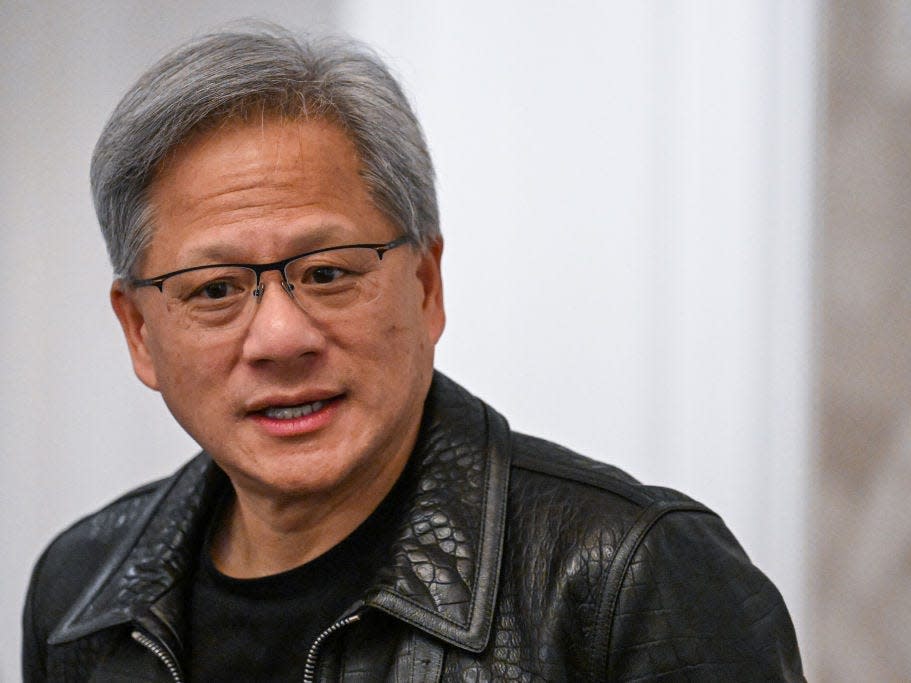The demise of Cisco and Sun are cautionary tales. Nvidia's Huang is worried history could repeat itself.

- Oops!Something went wrong.Please try again later.
Jensen Huang isn't sitting comfortably atop the world's most valuable company.
He doesn't want Nvidia to meet the same fate as Cisco or Sun, The Information reports.
The two other companies were on top in the 90s, but collapsed when the dot-com bubble burst.
For Jensen Huang, unparalleled success has reportedly come with a healthy helping of anxiety.
The Nvidia cofounder has been christened the tech world's Taylor Swift — with a rock-star persona to match the company's unprecedented riches.
Known for his signature leather jackets, Huang was recently pictured autographing a woman's chest at a tech event in Taiwan — this as 31-year-old Nvidia became the world's most valuable company on Tuesday, edging out Microsoft with a $3.338 trillion market capitalization.
But The Information reported that behind the scenes, Huang, 61, is concerned with future-proofing Nvidia, telling colleagues he doesn't want it to meet the same fate as former tech titans Cisco and Sun Microsystems.
Having launched in 1999 as a maker of GPUs for gaming systems, Nvidia has had its stumbles over the years, The Information reports, including a failed attempt at software for self-driving cars.
There's no imminent sign of a slowdown for Nvidia's white-hot chips that are largely powering the AI boom.
But a glimpse at the histories of fallen tech companies illuminates just how quickly fortunes can turn.
Cisco shares plunged when the dot-com bubble burst
Several analysts have drawn parallels between Nvidia and Cisco, which also trafficked in hardware that fueled its day's transformative technology.
Cisco sold routers and other networking hardware during the dot-com bubble. It went public in 1990 and saw its stock crest in 2000, briefly becoming the world's most valuable company with a $569 billion market cap.
Sound familiar?
But then the bubble burst. Data centers built by telecom companies went untapped, and Cisco's hardware went from revolutionary to commonplace.
The company announced layoffs in 2001, and by October 2002, its share price had plunged 90%, according to Investor's Business Daily. While shares have never reached peak levels again, the company continues to operate.
Sun had a $200 billion valuation — and was later acquired for a fraction of that.
Another cautionary tale Huang reportedly heeds is Sun Microsystems.
"He tries to remind people not to get 'Sunned,'" a Nvidia employee told The Information.
The server and computer manufacturer experienced a similar ascent to Cisco during the dot-com bubble, with CEO Scott McNealy and programmer Bill Hoy emerging as celebrities of the tech industry, according to Forbes.
Sun's operating systems were an early hit and eventually led the company to a peak market cap of $200 million in 2000, according to Marketwatch.
But eventually competitors caught up — and Sun failed to pivot to the lucrative software space, The Information reports.
It was acquired by Oracle for $7.4 billion in 2009.
The Information reports Huang is seeking to avoid the same fate by diversifying Nvidia's business beyond chips, including with cloud server rental and software businesses.
Nvidia AI Enterprise, for instance, is an operating system that trains AI. Whether history repeats itself remains to be seen.
Read the original article on Business Insider

